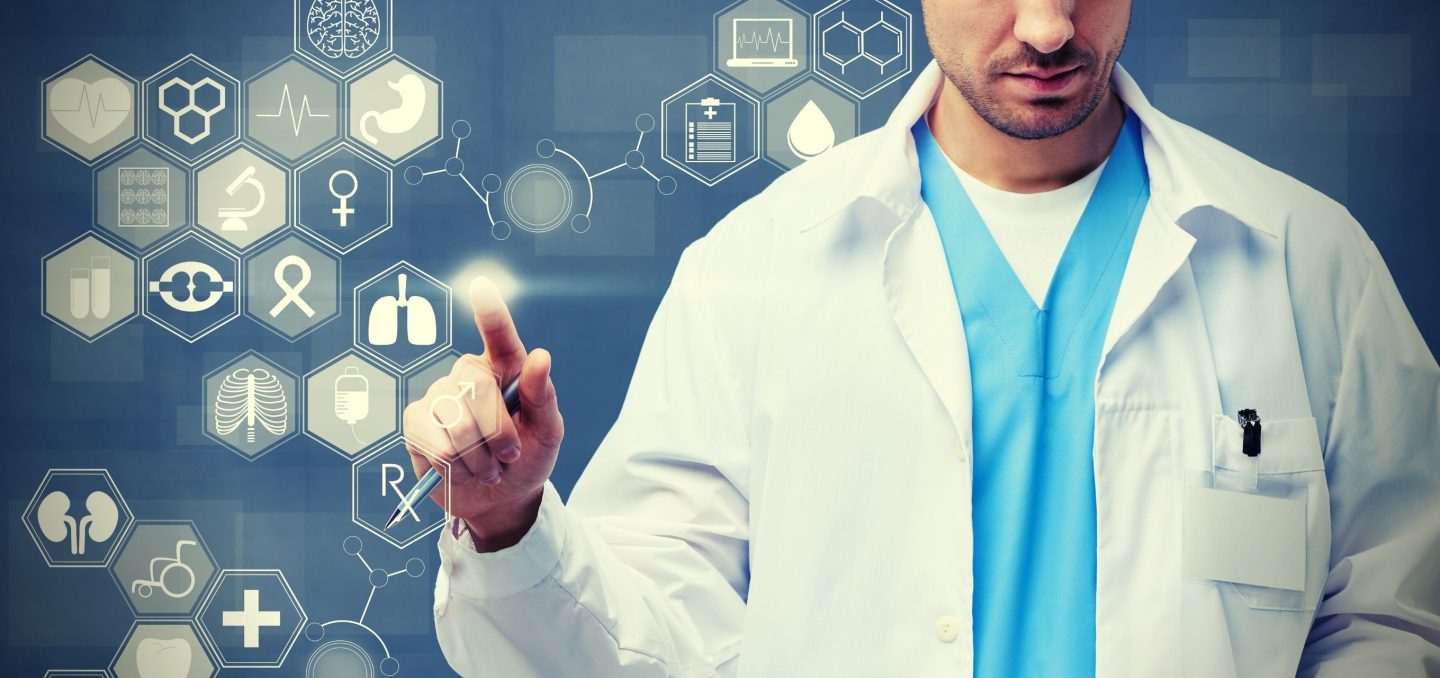In the rapidly evolving landscape of healthcare, this year will bring forward some major advancements and transformative trends. As we delve into the future of medical technology, several key developments emerge as pivotal in shaping the next wave of healthcare innovation.
Here I’ll explore these trends, highlighting their potential in revolutionizing patient care, improving diagnostic accuracy, and accelerating drug discovery.
From the world of artificial intelligence and machine learning to the expanding horizons of telehealth, wearable health technologies, data security, and digital therapies, each trend represents a significant step in the journey toward a more efficient, personalized, and accessible healthcare system.
Moreover, the advent of artificial intelligence-based methodologies in drug discovery promises to unlock new treatment possibilities, underscoring the symbiotic relationship between technology and healthcare in shaping a healthier and more informed future.
Advanced AI and Machine Learning
The integration of AI and machine learning in healthcare is expected to advance, with more sophisticated algorithms aiding in diagnostics, patient care management, and personalized medicine. The health care sector is witnessing a paradigm shift, largely fueled by rapid advancements in AI and Machine Learning. These technologies will not be mere supplementary tools but will instead become integral components of healthcare systems around the world. Their integration represents a monumental leap in the way health care is delivered and experienced.
Telehealth and Remote Monitoring Expansion
The significant growth experienced during the COVID-19 pandemic, will likely continue, offering more comprehensive services. Remote patient monitoring technologies will become more advanced and widespread with telemedicine not only present, but increasingly integrated and sophisticated in healthcare systems.
Wearable Health Technology
Health and fitness monitoring is expected to reach new heights in terms of complexity and accuracy. This advancement is not solely about the technology itself, but also about how it radically changes our approach to health management and preventive care. In addition to tracking basic metrics such as heart rate and steps, these devices will likely monitor advanced metrics such as blood oxygen saturation, hydration levels, stress levels and even early signs of illness.
Digital Therapeutics (DTx)
The use of digital tools to treat medical conditions, either as standalone therapies or in conjunction with traditional pharmaceuticals, is only set to grow. DTx are expected to play an increasingly significant role in the healthcare landscape, evolving as a key component in the treatment of various medical conditions.
Digital therapies, initially focused on the management of lifestyle conditions such as diabetes and obesity, are expected to broaden their scope to include a wider range of conditions, including mental disorders, neurological conditions, and chronic diseases. Technological advances will improve the effectiveness of these therapies, making them viable alternatives or complementary treatments to traditional drugs.
Genomics and Personalized Medicine
Personalized medicine will reach a pivotal moment, mainly due to advances in genomic technologies and their increasing accessibility and affordability. This integration marks a significant shift in healthcare towards more personalized and precise treatment strategies, fundamentally changing the way we approach disease prevention, diagnosis, and treatment. The democratization of genomics is expected to continue, allowing more individuals to benefit from medicine based on their unique genetic make-up.
Cybersecurity in Healthcare
As well as bringing numerous benefits, the digitization of healthcare also amplifies the need for robust cyber security measures. The dependence on digital technologies – from electronic health records (EHR) to telemedicine and wearable devices – makes it increasingly susceptible to cyber threats. Protecting sensitive patient data from such threats is not just a technological necessity, but a fundamental aspect of care.
Ransomware, data breaches and phishing attacks are some of the most common threats that healthcare institutions face. These attacks can lead to the theft of personal health information (PHI), financial data and even the disruption of healthcare services.
Virtual Reality (VR) and Augmented Reality (AR) in Training and Treatment
Therapy and patient education is set to become more sophisticated and widespread. These immersive technologies will transform various aspects of healthcare, offering innovative solutions to improve clinical skills, patient care and the overall experience.
They provide medical students and professionals with a highly interactive and immersive learning environment. For example, VR simulations can reproduce complex surgical procedures, allowing trainees to practice in a controlled environment. AR, on the other hand, can superimpose digital information onto the real world, helping to understand anatomical structures and functions. These technologies can also facilitate remote learning, which has become increasingly important.
They also hold great promise in the therapeutic landscape. In fact, they have already been used effectively in the treatment of conditions such as PTSD, anxiety disorders and phobias, exposing patients to controlled environments where they can face and learn to manage their fears. AR applications, on the other hand, are being studied in rehabilitation therapy, where they can help patients regain motor skills after an injury or stroke.
Mental Health Technology
This is undergoing a significant technological transformation. Growth and innovation in the mental health technology sector will continue to grow, reshaping how mental health services are accessed and delivered.
The proliferation of mental health apps is set to continue, offering users a range of services from mindfulness to stress management and cognitive behavioral therapy (CBT) techniques. These apps offer the convenience of accessing mental health support anytime, anywhere, making them particularly attractive to those who may face barriers to traditional therapy, such as stigma or logistical challenges.
Nanotechnology in Medicine
This technology, which operates at the molecular level, has immense potential to revolutionise various aspects of healthcare, including drug delivery, diagnostics, and treatment methodologies.
One of the most promising applications of nanotechnology in medicine concerns drug delivery. Nanoparticles can be designed to target specific cells or tissues in the body, delivering drugs directly to the site of disease or injury. This targeted approach not only increases the effectiveness of treatment, but also significantly reduces side effects. Later this year, we may see more nanotechnology-based drug delivery systems approved by the FDA, especially for the treatment of cancer.
Healthcare Data Analytics
HDA is expected to be more important than ever, thanks to the integration of artificial intelligence (AI) and machine learning (ML). The vast amount of data generated in healthcare, from medical records and treatment outcomes to genomic data and population health trends, offers a wealth of information that can transform healthcare delivery, improve patient outcomes, and optimize operational efficiency.
Advanced analytical tools will enable more effective population health management by identifying patterns and trends within large datasets. These tools can track and analyze the spread of disease, predict outbreaks, and help allocate resources where they are most needed.
AI and ML are increasingly being used to predict patient outcomes, enabling early intervention in high-risk patients. For example, algorithms can analyze electronic health records (EHRs) to identify patients at risk of developing chronic conditions or being readmitted to the hospital. This predictive capability can help personalize patient care plans to prevent deterioration and reduce hospital readmissions.
Looking ahead
Looking into the near future, the healthcare sector is in something of a technological renaissance, driven primarily by revolutionary advances in artificial intelligence and emerging technology trends.
These advancements promise not only to improve the efficiency and accuracy of healthcare delivery, but also to open new avenues for personalizing treatments, empowering patients, and simplifying care. The integration of advanced applications of generative AI and machine learning is set to redefine diagnostics, treatment planning and patient outcomes, marking a significant leap forward in our efforts to address complex healthcare challenges.
Meanwhile, the evolving healthcare technology landscape, including wearable devices, telemedicine, and digital therapies, underlines a future in which healthcare is more accessible, data-driven and tailored to individual needs.
These technologies are being integrated into home care services to improve the quality of life of the elderly. Smart home systems, remote monitoring devices and artificial intelligence-assisted personal assistants are making it possible for the elderly to live independently while ensuring their safety and well-being.



